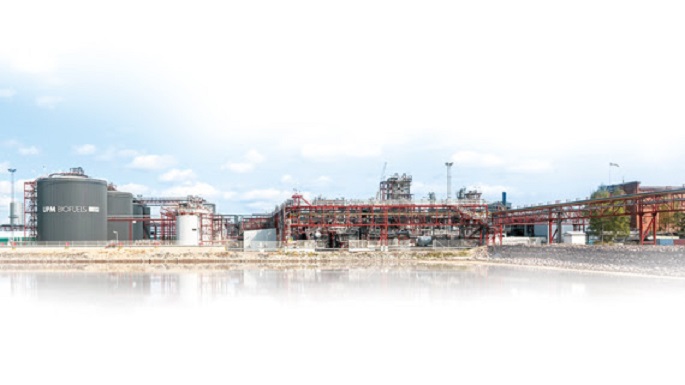UPM moves forward in biochemicals business
Published : 25 Oct 2017, 03:03
UPM moves forward with the development of biochemicals business by evaluating the potential of building a biorefinery in the Chemical Park Frankfurt-Höchst in Germany.
The new-to-the-world biorefinery would combine novel technologies and utilize sustainable wood raw material in an innovative way, said a press release.
This opportunity is the outcome of more than five years of extensive technology development and piloting.
The planned industrial scale biorefinery would convert wood into bio-monoethylene glycol (bMEG), bio-monopropylene glycol (bMPG) and lignin up to 150,000 metric tons per year. Production would be based on hardwood from sustainably managed forests in Central Europe.
Application areas for bio-monoethylene glycol include textiles, bottles, packaging and deicing fluids. Bio-monopropylene glycol is used for example in composites, pharma and cosmetics or detergents. Lignin can be used for example in wood resins, plastics or foams and coatings. Recently, UPM Plywood introduced WISA BioBond gluing solution that replaces fossil-based phenol with lignin in plywood products.
UPM will now proceed with a detailed commercial and basic engineering study to verify the attractiveness of the business case. The estimated duration of this phase is about 12 months. If all preparation phases are concluded successfully, UPM would initiate the company's standard procedure of analysing and preparing an investment decision.
"We are truly excited about this opportunity to bring bio-based products to the market, which would enable replacement of fossil-based materials with new renewable alternatives" said Juuso Konttinen, Vice President, UPM Biochemicals.
"Renewable raw material and efficient processes enable significant reductions in CO2 footprint compared to fossil-based products. Furthermore, wood as a second generation raw material does not compete with food production. These are compelling sustainability arguments for brand owners and their businesses," Konttinen added


